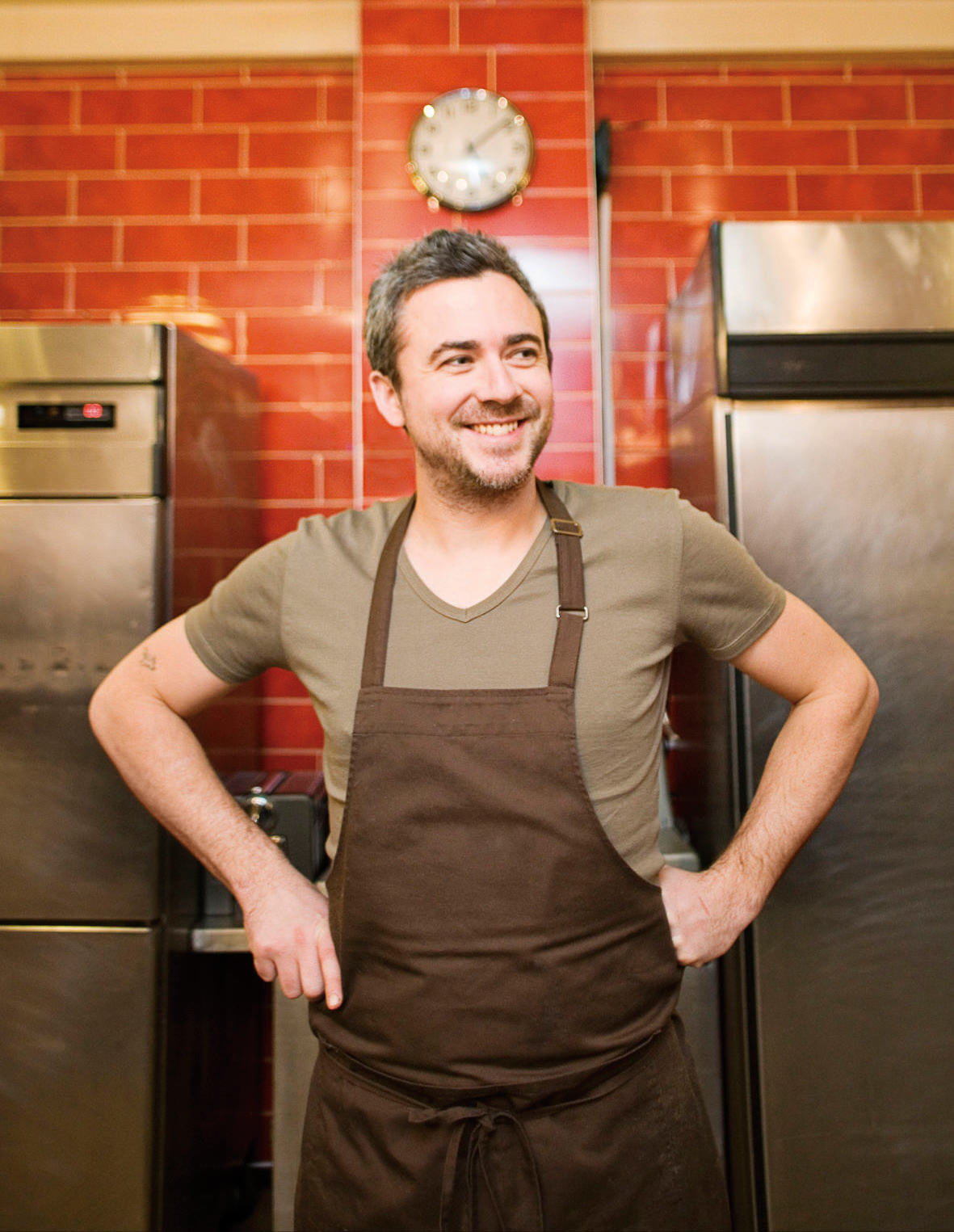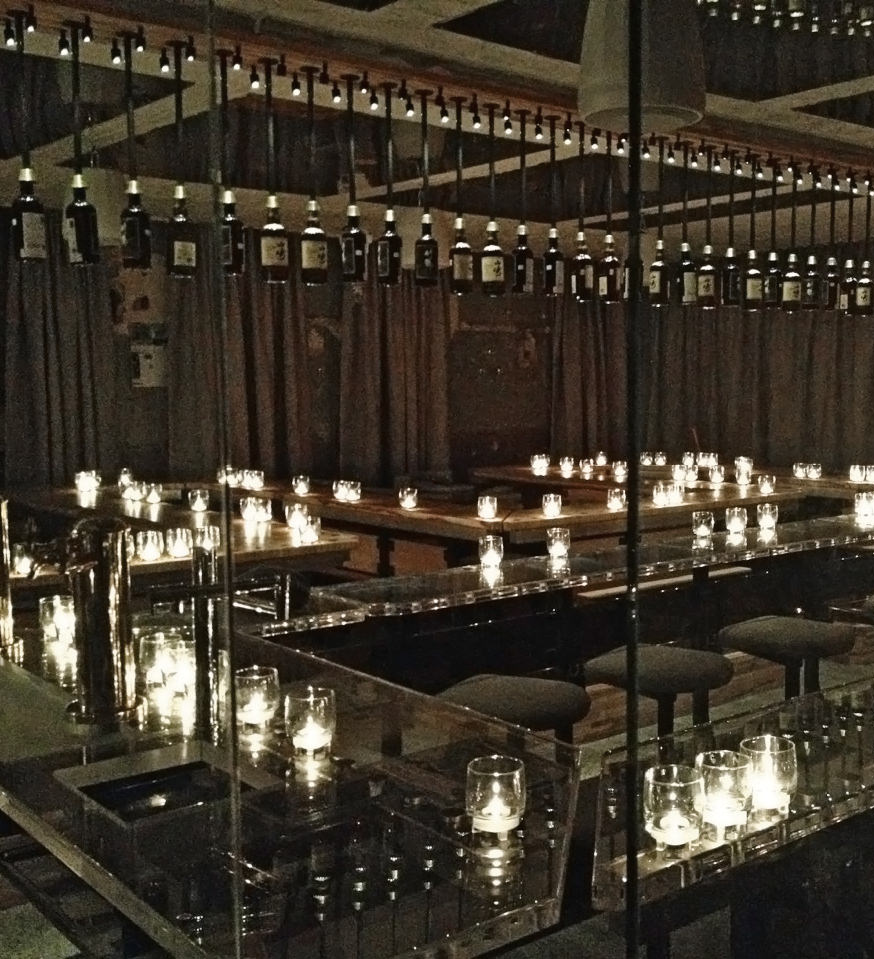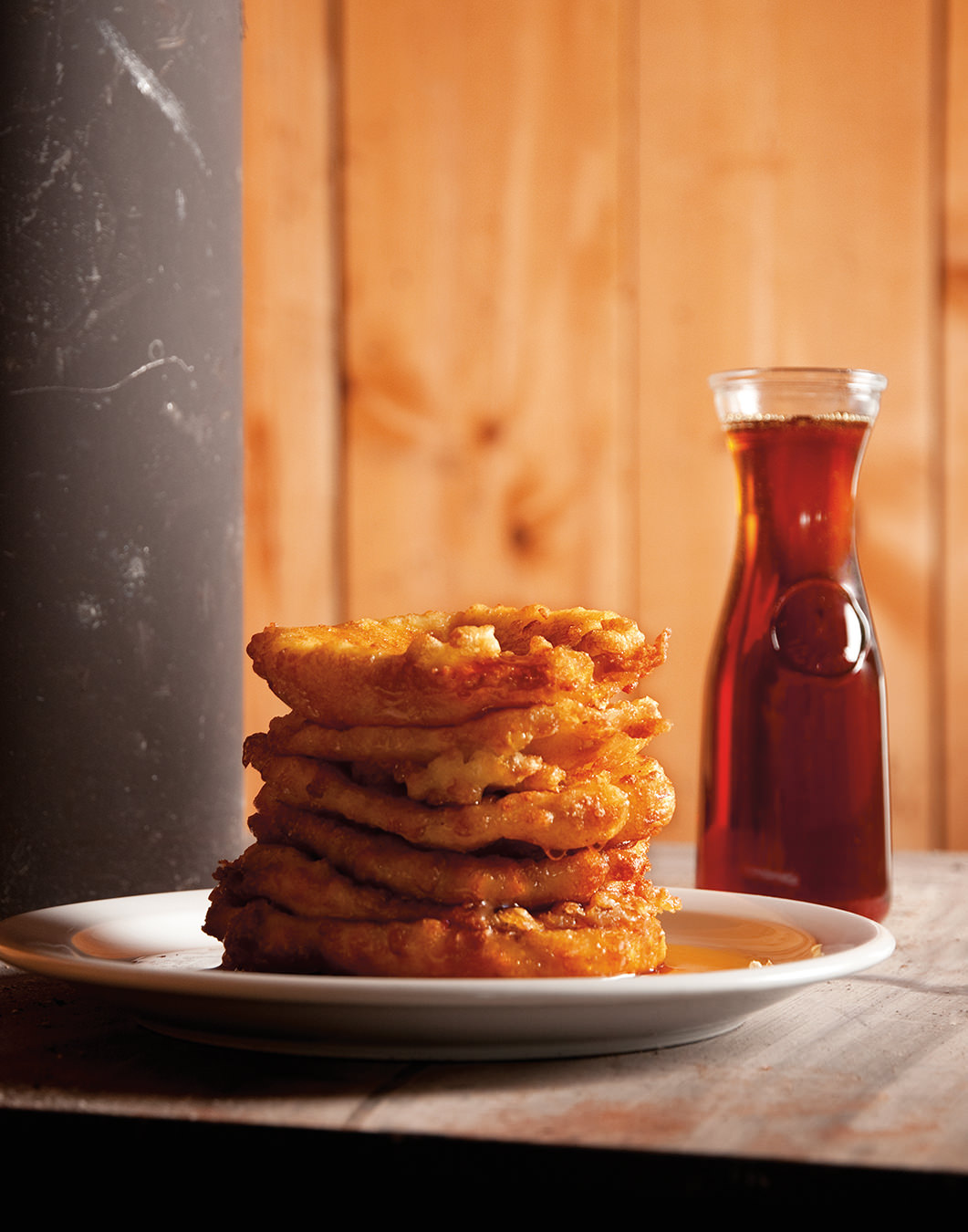Les Cocagnes Unites Young Farmers and Gourmet Chefs in Quebec
Farm-to-fundraiser.
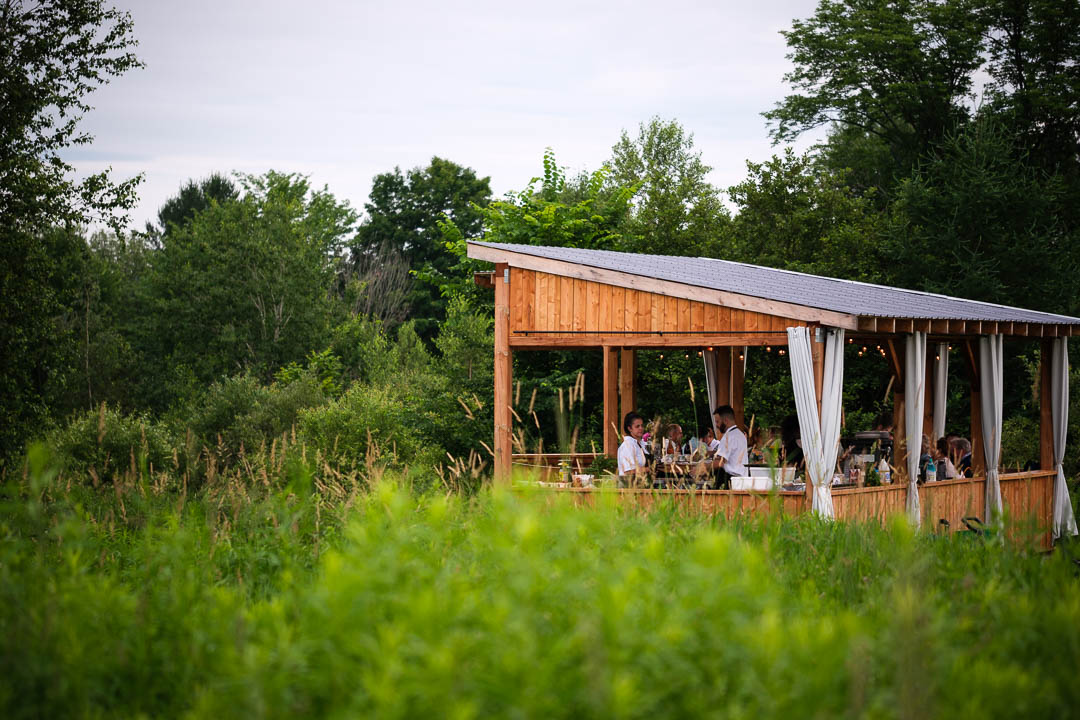
Time was of the essence. Though she’d never planned to move to the country, Stéphanie Hinton had fallen in love with the picturesque village of Frelighsburg in Quebec’s Eastern Townships near the Vermont border. Just as a 40-acre piece of land came up for sale in early 2020, the pandemic first hit, and real estate speculation was on the rise. She had to make her move.
Hinton had no farming background—she worked in the arts as an international agent for Quebec dance troupes—but after consulting with professionals in the field, she settled on the model of a communal agritourism nonprofit supported by bondholders with a shared mission: helping small startup farmers and agricultural businesses thrive in a climate of scarce and unaffordable land.
The result was Les Cocagnes, currently home to vegetable farmers Les Siffleux and Le Rizen, as well as micro-nursery Pépinière du Bocage, which specializes in fruit and nut trees. The goal is to eventually host seven diverse projects suited to the land. “Maybe flowers, and we have maple trees,” Hinton says.
Just as noteworthy as Les Cocagnes’ mission is its source of public fundraising. Beginning in 2022, it has welcomed guests to a series of five-course meals from famed Quebec chefs. At around 20 people per seating under a romantic pergola, it’s an intimate, immersive experience amid the fields and views of Mont Pinacle.
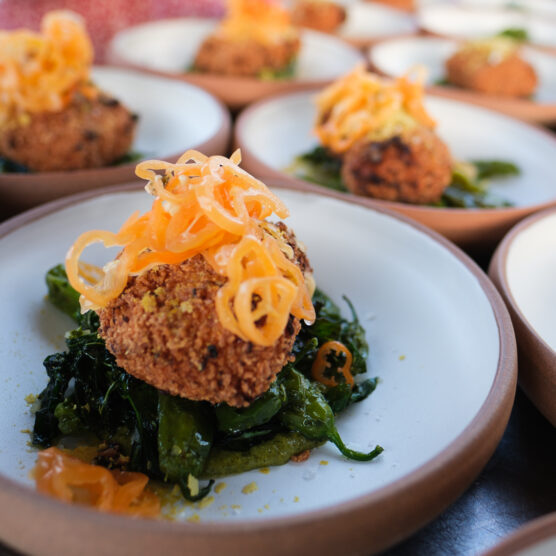
“It was a lot easier than we expected to get chefs to sign on, even before I had anything to show them. They stay here with their teams, jump in the pond in the morning. They see it as an adventure,” Hinton says.
This year, over weekends through September, the site will welcome 21 chefs from Quebec and Ontario. The 2024 lineup includes standouts like Poincaré Chinatown’s fermentation-focused Jeremiah Bullied, Les Chefs! contestant Fanny Lehouillier, and David Janelle of Chicoutimi’s La Cuisine. While they all bring their own signature flavour, they must use 50 per cent of goods grown on-site (a requirement for Quebec farms to host this type of event) and are given a list of nearby providers where they can source additional ingredients.
Another hyperlocal highlight, one that might have been unimaginable 10 or 20 years ago: Quebec wine pairings. Hinton can readily name multiple beloved vineyards a short drive away—l’Espiègle, Pigeon Hill, Maison agricole Joy Hill––and says the trick to Quebec vintners’ recent acclaim, beyond environmental factors, was embracing their own grapes and terroir rather than trying to replicate foreign wines.
In addition to fine dining, Les Cocagnes also hosts more laidback, community-oriented events, including reservation-free Tuesday apéros. Despite all the work still to be done this summer, Hinton’s vision rests firmly in the future, with projects including the development of walking trails, regreening the banks of waterways, and major renovations to the old barn, including creating a commercial kitchen, multifunctional space, and boutique.
With so much on her plate, Hinton admits she doesn’t get outside as much as one might assume, considering her surroundings. “I’m always in front of the computer planning things,” she says, with a laugh. “As my boyfriend says, Tout est un projet. Everything is a project.”

